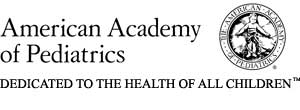

Although your pediatrician can solve most health problems of newborns, a neonatologist is trained specifically to handle the most complex and high-risk situations. If your newborn is premature, or has a serious illness, injury, or birth defect, a neonatologist may assist at the time of delivery and in the subsequent care of your newborn. If a problem is identified before your baby is born, a neonatologist may become involved to consult with your obstetrician in your baby's care during your pregnancy.
What kind of training do neonatologists have?
Neonatologists are medical doctors who have had the following training and certification:
What types of treatments do neonatologists provide?
Neonatologists generally provide the following care:
Neonatologists work mainly in the special care nurseries or newborn intensive care units of hospitals. In some cases, after a newborn has been discharged from the unit, a neonatologist may provide short-term follow-up care on an outpatient basis. Your neonatologist will coordinate care with your baby's pediatrician.
Where can I find a neonatologist?
Neonatologists practice in children's hospitals, university medical centers and large community hospitals. Your pediatrician or obstetrician will be able to refer you to a neonatologist if your newborn baby needs this special care.
Neonatologists — The Best Care for Newborns
Newborn babies are not just small adults. A medical problem can mean a special challenge. Sometimes babies are born before their bodies are ready to leave the womb. Important organs such as the heart, lungs, stomach and skin may not be mature enough to function without special help.
Neonatologists have the special training required to evaluate and treat newborns' medical problems. In addition, neonatologists use equipment that is designed specifically for the tiniest patients. If your pediatrician suggests that your baby needs to be evaluated by a neonatologist, you can be assured that your child will receive the best possible medical care.
The American Academy of Pediatrics expresses its appreciation to all those who contributed to this brochure, including Lynne D. Willett, M.D., who served as principal medical reviewer and the Section on Perinatal Pediatrics.
The recommendations in this statement do not indicate an exclusive course of treatment or serve as a standard of medical care. Variations, taking into account individual circumstances, may be appropriate.